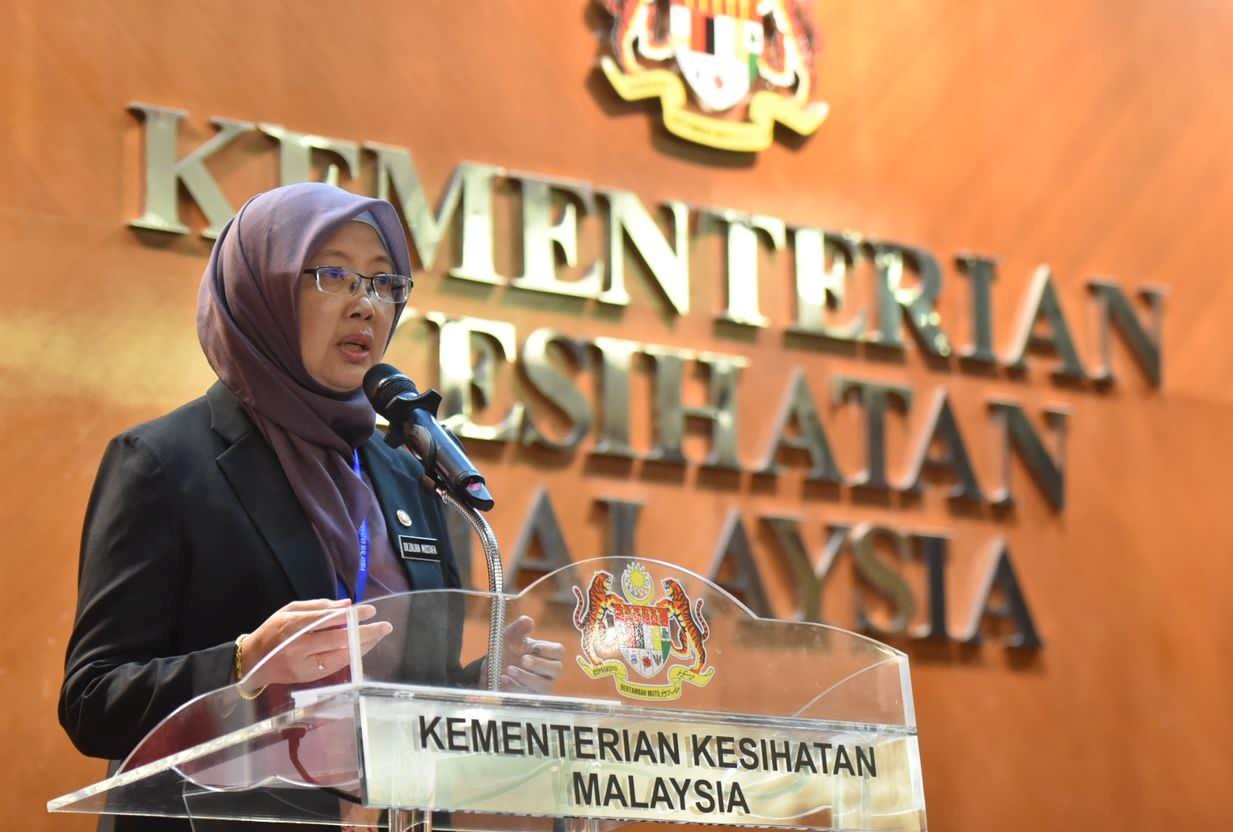KUALA LUMPUR, April 1 – Dr Zaliha Mustafa expects to table a “new” bill on tobacco and vape control in the next parliamentary meeting expected in May, after liquid nicotine was exempted as a controlled substance from yesterday.
The health minister said this bill, including provisions on the generational end game (GEG), had undergone stakeholder engagements by the Ministry of Health (MOH) with MPs, non-governmental organisations, and professional bodies, among others.
“To ensure comprehensive control of nicotine preparations or gel containing nicotine in electronic cigarette or vape liquids, MOH will table a new bill to regulate all smoking products, including smoking products containing nicotine that is used for smoking,” Dr Zaliha said in a statement.
“In the meantime, MOH will increase awareness and advocacy campaigns on the dangers of smoking, including the use of electronic cigarettes or vape through the Generational End Game Anti-Smoking Plan (Gegar) by continuing the implementation of anti-smoking programmes and quit-smoking interventions at schools and institutions of higher education through cooperation with the Education Ministry, the Higher Education Ministry, Yayasan Sukarelawan Siswazah, the Malaysian Youth Council, and other related non-governmental organisations.”
Dr Zaliha did not specify if the “new” bill that the government intends to table in Parliament in the next meeting is the Control of Tobacco Product and Smoking Bill 2022 that was tabled in the last Parliament.
The GEG – which seeks to ban tobacco and vape products for anyone born from 2007 – was the most contentious provision in the bill that was previously criticised by multiple MPs from the 14th Parliament on both sides of the divide, some of whom remain federal legislators in the current Parliament.
Dr Zaliha recently held briefings with both government and Opposition MPs on the Control of Tobacco Product and Smoking Bill.
She said today that the exclusion of liquid nicotine from the Poisons List under the Poisons Act 1952 – in an amendment that she gazetted yesterday – was in line with the government’s decision to tax e-liquids containing nicotine, as announced by Finance Minister and Prime Minister Anwar Ibrahim when he tabled Budget 2023 last February.
“Pursuant to this exemption, the preparation of liquid or gel nicotine for smoking purposes with electronic cigarettes or vaporisers is now an excisable good that is regulated under the Excise Act 1976 (Act 176),” the health minister said.
“The Excise Act 1976 provides control, among which is to licence manufacturing and warehousing activities that involve such preparations. Anyone who manufactures excisable goods without a licence can be subject to legal action.”
The health minister’s statement did not explain why she exercised her unilateral power, as provided for under the Poisons Act, to overrule the Poisons Board’s unanimous opposition to the proposed exemption of liquid nicotine from the Poisons List of controlled substances.
The Excise Act only relates to excise, or taxation. Anwar — in an amendment order gazetted last Wednesday, the same day as the Poisons Board meeting — imposed an excise duty of 40 sen per ml on e-liquids containing nicotine, effective today.
The declassification of liquid nicotine effectively legalises e-cigarettes and vape with nicotine without any regulations in place, as the current Control of Tobacco Products Regulations 2004 under the Food Act 1983 only cover conventional cigarettes and other tobacco products.
Malaysia currently has no regulations whatsoever on vape or e-cigarettes with nicotine, such as restrictions on sale to minors under 18; restrictions on ingredients, nicotine content, or volume of e-liquids for sale; labelling requirements and warnings; or bans on advertising, promotion and sponsorship.
Galen Centre for Health and Social Policy Azrul Mohd Khalib, in a statement earlier today, warned the government that its decision to declassify liquid nicotine as a controlled substance could trigger a new health crisis with an epidemic of nicotine addiction among children and teengers.
He had also noted that the move was intended to not only legitimise the use of nicotine e-cigarettes and vape, but to also allow local industry to manufacture such products, which are currently mostly imported from China, so that they could also be taxed.
Malaysian Council for Tobacco Control (MCTC) chairman Dr M. Murallitharan told Free Malaysia Today that the delisting of liquid nicotine could see children vaping legally, besides expressing doubt about the tabling of the tobacco bill.
“Even if it is tabled and passed in June or July this year, there would already be new addicts, and it would include children as well,” he was quoted as saying.








